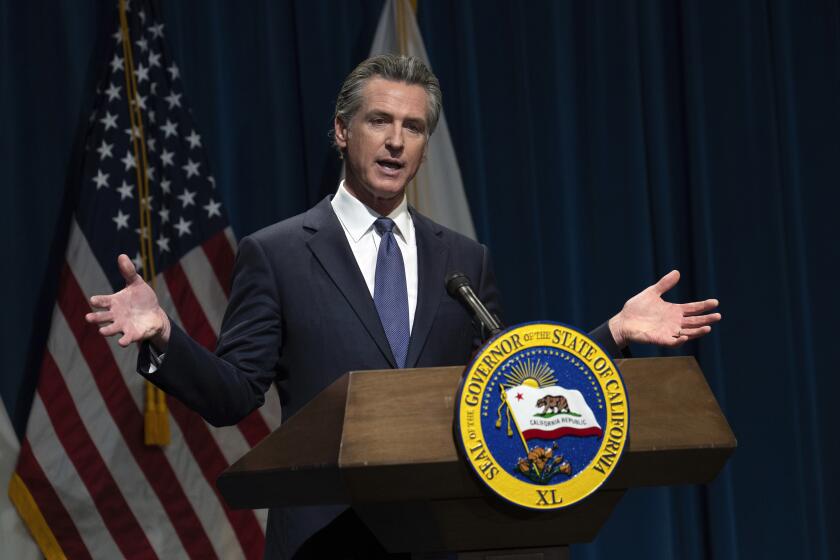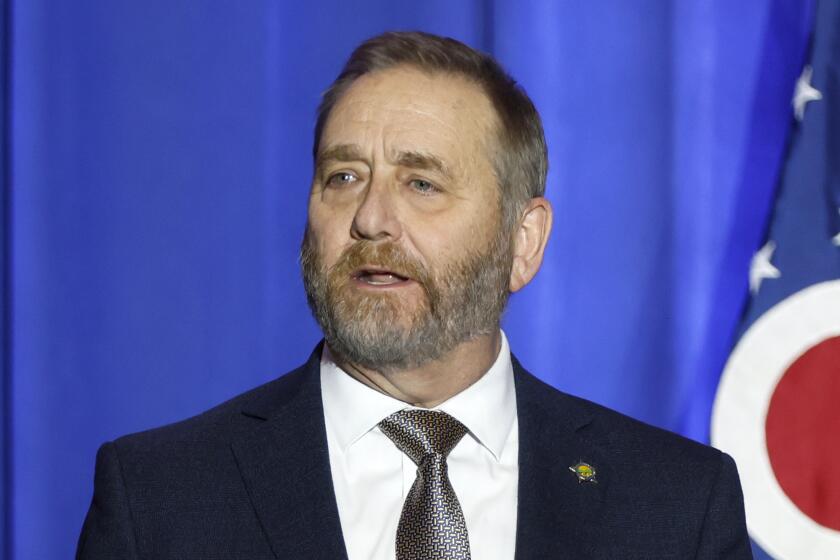High Court Upholds Selective Prosecution of Draft Resisters
The federal government’s former policy of prosecuting only those young men who publicized their refusal to register for the military draft was valid, the Supreme Court ruled today.
By a 7-2 vote in the case of a 24-year-old former Yale philosophy student from Pasadena, the court said the policy, which has since been dropped, did not violate any constitutional rights.
The decision clears the way for the prosecution of David Alan Wayte, who had claimed that his free-speech rights were violated by the government’s “selective prosecution.”
Way Cleared for Others
Today’s ruling also appeared to clear the way for the prosecutions of other men who, like Wayte, publicized their resistance to draft registration.
Draft registration--not the military draft--was reinstituted in 1980 under a law signed by then-President Jimmy Carter. About 12 million men, 98% of those eligible, have registered since then.
The law requires all male citizens and resident aliens born after Jan. 1, 1963, and between the ages of 18 and 26 to register with the Selective Service.
Enacted in the aftermath of the Soviet invasion of Afghanistan, the law is designed to make it easier to draft men if that becomes necessary.
Wayte challenged the government’s method of “deliberately selecting for investigation and prosecution only a class of vocal protesters against the law.” Those prosecuted represent a tiny fraction of the more than 700,000 who have not registered.
Ruling Explained
Writing for the high court, Justice Lewis F. Powell said Wayte “has not shown that the government prosecuted him because of his protest activities.”
Powell said Wayte had shown only that the government was aware that its passive enforcement policy would result in the prosecution of vocal objectors.
The government has since abandoned its policy of prosecuting only “known” non-registrants and now seeks out all eligible young men who have failed to register.
Powell said the former policy “placed no more limitation on speech than was necessary to ensure registration for the national defense.”
Court Divided
Powell was joined by Chief Justice Warren E. Burger and Justices Byron R. White, Harry A. Blackmun, William H. Rehnquist, John Paul Stevens and Sandra Day O’Connor.
Justices Thurgood Marshall and William J. Brennan dissented.
The decision upheld a ruling by the 9th U.S. Circuit Court of Appeals that had reinstated Wayte’s indictment.
In other cases, the court:
--Ruled that before public employees can be fired they are entitled to a hearing to determine whether there are reasonable grounds to dismiss them.
--Reinstated a $47,000 award won by a teacher who said she was turned down as a recreation director for Bessemer City, N.C., because she is a woman.
--Ruled that a 1978 federal law does not excuse states from repaying millions of dollars in previously misspent federal education grants.
More to Read
Start your day right
Sign up for Essential California for news, features and recommendations from the L.A. Times and beyond in your inbox six days a week.
You may occasionally receive promotional content from the Los Angeles Times.





